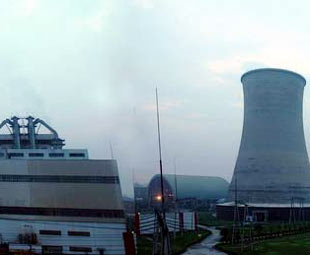| Home / Environment / Photo News | Tools: Save | Print | E-mail | Most Read |
| China Closes Down 3,176 Polluting Companies in 2006 |
| Adjust font size: |
In the campaign, the State Environmental Protection Administration (SEPA) and other departments investigated 28,000 cases violating related environmental laws and regulations and settled 13,000 of the total. Threats to the sources of drinking water, industrial parks densely distributed with polluting enterprises and construction projects likely to damage the environment were the major targets in the campaign, according to the administration. "Pollution by industrial parks has been curbed effectively," said an official with the administration. A total of 1,981 industrial parks across the country, involving29,890 enterprises, were subject to investigation, and 4,162 polluting companies got severe punishment, the official said. Other six ministerial departments, including the Ministry of Supervision, participated in the campaign. China failed to meet its energy conservation and pollution control targets last year, and environmental degradation remains a prominent problem stifling China's economic and social development. China reported 161 pollution accidents last year. The administration suspended 163 projects that would damage the environment with a total investment of 770 billion yuan (US$96 billion). Many of the projects were highly-polluting and energy-costly, such as constructions of steel and power plants. This year China has made greater efforts to fight against pollution. In March, SEPA published a long list of more than 6,000industrial polluters, including well-known companies and factories such as Sinopec's Nanjing facility and a steel plant owned by Beijing Shougang Company. SEPA has required all the companies on the list to install automatic monitoring and control systems which are directly connected to local environmental protection departments. It also orders local environment departments to make site checks at least once a month and ensure the appropriate pollution discharge fees are paid. SEPA also issued a draft measure recently, requiring environmental departments at all levels to make public 17 categories of environmental information including laws, regulations, policies and standards regarding environmental protection. (Xinhua News Agency May 6, 2007) |
| Tools: Save | Print | E-mail | Most Read |
 |
| Related Stories |
